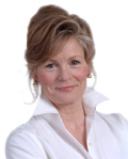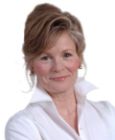
Relationships
What if there were community ceremonies to mark divorce?
Wedding is to marriage as ? is to divorce.
Posted August 12, 2010
Rituals are usually associated with life's momentous occasions: birth, death, and, for those who are allowed, marriage.
There are also those times in the life cycle in which, although the event is no less significant, it goes unmarked by ceremony or observance. Sometimes it can be more of an ambiguous loss, like a miscarriage, or something experienced at the edge of shame, like abortion. A great silence surrounds such occasions. They are losses nonetheless, but not deserving of a ritual to mark them, or to experience them in community with others.
Such is usually the case with divorce.
Several weeks ago, I attended a divorce ‘ritual' of sorts, and came away so moved by the experience that I decided to share it here on my PT blog: Family.Life.
My friend Yasmin brought together an eclectic group of family and friends who gathered at events held on a Saturday night and Sunday afternoon in Philadelphia. Much like a wedding, many of us were previously strangers, and became joined in a web of connection to our mutual friend.
Yasmin had brought us together to mark the finality and transition of her divorce.
Well, that was my particular spin on the event, but for Yasmin, it was more about saying ‘thank-you' to each friend, who, in their own unique ways, helped her through the past five years of deep and profound grief, searching, and ultimately, completion. She remarked that her marriage took place in community, yet was ended alone and in silence. She was attempting to alter what this culture does relative to the dissolution of a marriage.
It was quite a cast of characters: cousins, aunts and uncles, best friends of the former husband, some who drove many hours to be there. There was a therapist and rebirther, those who knew Yasmin only post-separation, her best pal from fifth grade, the new boyfriend.
And while I couldn't really call it a celebration - although at times it did feel joyous and celebratory, it was also marked by tears - at times we struggled to even articulate what moved us so profoundly in the space that was created.
The centerpiece was a meal for 28 that Yasmin had arranged at a local restaurant that Sunday afternoon. In a private room, at a beautifully appointed table, we toasted and dined, while each took turns to speak about our experiences, both with Yasmin, and in our own lives, of unexpected rupture and eventual transition to a new place.
This process reminded me that as a Family Therapist, I often am exposed to beliefs about the destructive nature of divorce. And generally, as a culture, we have become accustomed to hearing only one version of the divorce story: the bitter, high conflict divorce that results in a ‘broken' family. With my clients who might be seeking alternative perspectives on the ending of a marriage, I always recommend the books by Connie Ahrons: The Good Divorce: Keeping you Family Together when Your Marriage Comes Apart, and, We're Still Family: What Grown Children have to Say about their Parents Divorce.
Together these books narrate the potential of another story about divorce - one that does not have to decimate all involved. Ahrons quotes the noted anthropologist Margaret Mead, who was married and divorced three times; a reporter asked about her ‘failed' marriages, to which she replied," I didn't have any failed marriages. I've been married three times and each marriage was successful."
Says Ahrons: "She went on to explain that she had gone through several very distinct life stages and had at each time chosen a different mate, one who could meet her needs and priorities of that time. She also suggested in her writings...that her own pattern of serial monogamy was the wave of the future."
Perhaps this evolution away from the catastrophic predictions about the consequences of divorce can be seen to correspond with parallel shifts in the meanings of marriage. In Marriage, A History: How Love Conquered Marriage, family historian Stephanie Coontz discusses the very modern notion of marrying for romantic love and the elevated expectations (and greater disappointments) of that partnership when it is no longer primarily an economic arrangement between families. And yet, even as divorce has lost its stigma and many reconstituted families make healthy adjustments to their post-divorce lives, it is clear that the transitions themselves may remain painful and confusing.
I too live in a post-divorce, binuclear household, and can say without question that there was far more grief associated with my divorce than I ever anticipated. I am reminded of the line from a movie, "Going through a divorce is like being in a car accident, every single day, for two years." Or, as my 15 year-old son said, "The worst thing about a divorce is that in order to be with one parent, you have to say goodbye to the other."
The ritual that I attended for Yasmin was, in her words, a marker of "crossing through a milestone of growth and development, and celebrating the amazing generosity of those who were with me." Those weekend ceremonies added a far richer text to the stories of both her marriage and divorce.
The act of sharing, amongst a community of witnesses, the stories of hope and commitment, of growth and change, of pain and grief, yes, but also of rebirth and the potential for a new, even more expansive life provides an antidote to the silence that otherwise colludes with the limited perspectives we hold for the families of divorce.
For those who are interested, here are some resources:
Religious divorce rituals:
http://www.beliefnet.com/Love-Family/Life-Events/Guide-To-Religious-Div…
Divorce ceremonies that help you "celebrate life post divorce":
http://www.ivillage.com/divorce-ceremonies-celebrate-your-life-post-mar…



